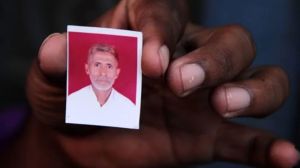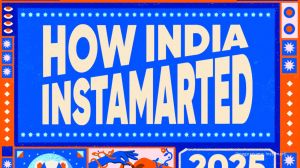Interview with Principal Economic Advisor: ‘Ordinance to rein in free riders, non-compliance’
The Ordinance amending the Banking Regulation Act will speed up the NPA resolution process by empowering the RBI in giving specific directions to banks.
 Sanjeev Sanyal, Principal Economic Advisor in the Ministry of Finance.
Sanjeev Sanyal, Principal Economic Advisor in the Ministry of Finance.
The Ordinance amending the Banking Regulation Act will speed up the NPA resolution process by empowering the RBI in giving specific directions to banks. It will also shield bankers from any investigative backlash in future as the resolution process will have the backing of Oversight Committees empowered by the RBI, Sanjeev Sanyal, Principal Economic Advisor in the Ministry of Finance, told Sunny Verma in an interview. Edited excerpts:
Is it not a conflict of interest if the banking regulator tells the regulated entities or banks to file winding up petitions for commercial lending decisions gone bad?
No. I think you are misunderstanding what is going on here. What is going on is that the Reserve Bank of India (RBI), as a regulator, now has certain powers. But this issue (of NPAs) is not getting resolved. This is an old issue that has been festering for some time and the banking system was gridlocked due to big NPAs. So this issue had to be resolved quickly. As it happens that in this particular episode, the issue of bad loans is concentrated relatively on few accounts and in few sectors. Because it happens to be much more concentrated you can take a targeted approach to solving the problem — you can call it Cutting the Gordian Knot. The way to do this was to address the three major problems:
One, was the problem of ‘free riders’ — that all lenders don’t come to the table. There is always some guy who doesn’t. Two, the problem of ‘non-compliance’ and the third problem was that decision itself doesn’t get taken because people will say that we are scared of investigation. Hence, now we are going to take few cases and target to solve them since the issues are concentrated. Now an Oversight Committee (OC) can be formed and look into each particular case as they are empowered with the ability to enforce and ensure that the ‘Free Riders’ problem goes away and everybody comes to the same table. Second, they will ensure that everyone is compliant and the third, because they are overseeing the process and they can also provide a stamp that the process has been followed and, therefore, the future threat of investigation is taken away.
Let me clarify now that it is not that the RBI Governor or the Deputy Governor will sit and say how much haircut should be taken in specific cases. This whole thing will be done on a commercial basis. This is what the banks will agree, this (amendment) is merely to be able to make sure that that process of commercial decision making of the banks is done quickly, and that everyone sticks to their part of the deal. This is not the case that either the government, or certainly not the central bank, is trying to personally resolve each case.
The decision to take a ‘hair cut’ is up to the banks but how does it ensure that the banks get that comfort?
Absolutely, this is why the oversight committee is very important … of course other things can also be done, you can decide whether to bankrupt somebody or go for liquidation, you may take a decision on that. You may, in some cases, take the decision to convert debt into equity, you may decide to put some of debt to ARC or warehouse, whatever their decision is. Only thing is that the oversight committee will say that we met on this date, and everybody agreed to this deal, and you can even get some external agency to do the valuation. Oversight committee will ensure that the process is taken care of.
Since, government is the majority owner in all these banks, why can’t the government take decisions regarding resolution?
It could be done but we have for a number of reasons (not done that) because we don’t own the private banks and we are also not the regulator. So this is much better done professionally, by the regulator, using commercial resources in Mumbai.
Will there be multiple oversight committees?
That’s purely a tactical decision that the Reserve Bank will have to take, and not for us to decide. The action will now totally be in Mint Street. They may decide on having multiple OCs or having three members or six members.
In order to address the three problems you mentioned earlier, will it also require some changes in other regulations?
Probably, now the RBI will act on those and will make changes accordingly. Now the entire ball is in RBI’s court. Very shortly, the RBI will come out with detailed guidelines.
Does the Ordinance protect bankers from investigative backlash?
Yes, you follow the process and if it is then approved by the Oversight Committee empowered by the Reserve Bank of India, which is the regulatory body, then that is the end of the matter.
- 01
- 02
- 03
- 04
- 05































